The underlying themes of Barbara Wang's (
Her latest work, The Legend of Yao Ji (
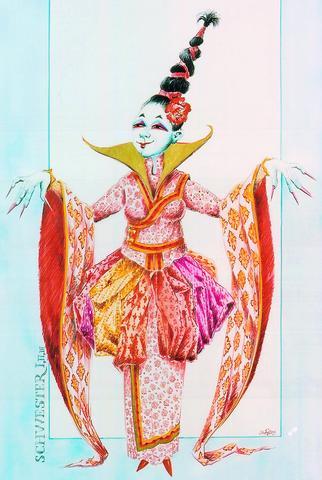
PHOTO COURTESY OF OPERA WORKSTATION
"I like to be creative and not too serious about opera, so that regular audiences unused to rigid operatic styles can still appreciate it," Wang said. "Audiences can relate to the storyline through the performers gestures, emotions and, of course, the music. You can't go wrong with a combination of Western and Chinese opera, a romantic storyline and some mythical magic, as it translates into any language."
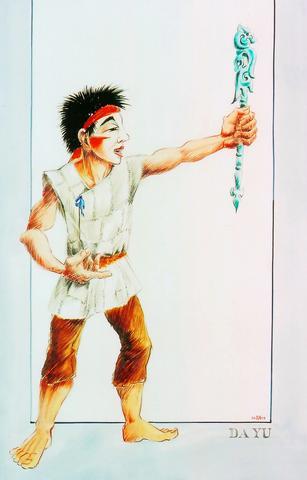
PHOTO COURTESY OF OPERA WORKSTATION
Born in Lisbon to Taiwanese parentage and schooled in opera direction at the University of Performing Arts in Vienna, Wang began her career producing standard Western operas. She has worked with operatic giants like Giorgio Strehler, Jean Pierre Ponnelle and Joachim Herz and has been responsible for the staging of over 25 large-scale productions from early 17th century opera to more contemporary works.
Over the past decade, however, Wang has veered away from tradition and has become one of the few producers to attempt to alter preconceived ideas of what Western and Eastern operas should be.
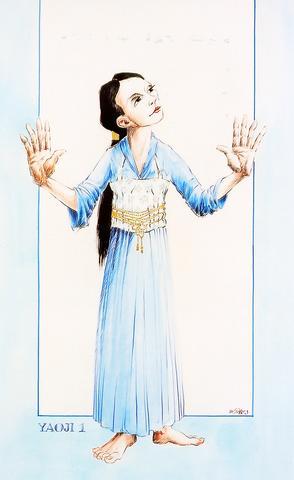
PHOTO COURTESY OF OPERA WORKSTATION
Her ability to successfully combine Chinese myths with aspects of classical Chinese opera and elements of Western opera first came to the attention of opera goers in 1993, when she staged a heavily stylized version of Chin Hsian's Savage Land (
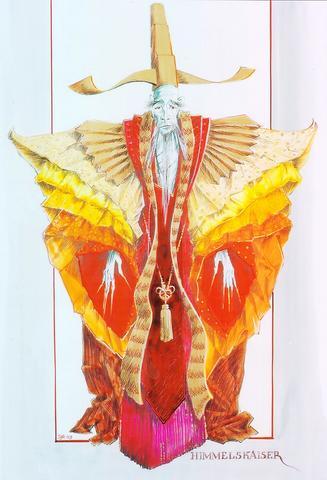
PHOTO COURTESY OF OPERA WORKSTATION
And it's not only the opera buffs who have been forced to rethink their fixed ideas of opera. Wang's syntheses have been debated in academic circles too. Her nonconformist production of Savage Land outraged traditional scholars who said her interpretation was so far removed from the original that it verged on the comedic. And, in 2001, her adaptation of Xi Shi courted controversy when Wang was charged with copyright infringement.
"It's very difficult to change trends in opera," said Wang. "But apart from the few whose very traditional notions will never change regardless of what happens, I've reached much wider audiences with my fusion works than I would have been done had I continued to produce standard Western operas."

PHOTO COURTESY OF OPERA WORKSTATION
For her latest production, Wang chose to avoid even an iota of controversy and adapted a lesser-known slice of Chinese folklore. Inspired by the mythical love affair between the daughter of the Queen of the Western Hemisphere, Yao Ji (
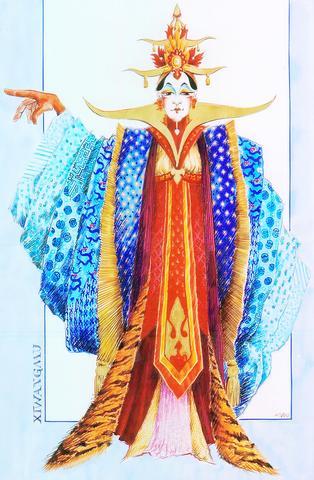
PHOTO COURTESY OF OPERA WORKSTATION
"I got the idea to develop this tale after I took a boat trip down the Yangtze River in 2001," Wang said. "The tour guide told us lots of stories about the area's mythology and I thought that this particular one had all the makings of an opera because of the romantic and tragic elements. I did change it a bit, though, as I realized that its hard for young people to fall in love during a flood. So, I added more depth and gave more space to the romantic aspects of the myth than the original story did."
Bored with her heavenly lifestyle, Yao Ji decides to seek adventure with the mortals who live on the other side of the Heavenly Gate. Along with her heavenly steed Yao Ji begins a series of adventures, leading to an encounter with the dashing hero, Da Yu, who has been battling for 13 years against a flood threatening mankind. Finally, and without wanting to give too much away, Yao Ji turns herself into stone to guard humankind forever, while Da Yu is crowned Emperor of the Hsia Dynasty (
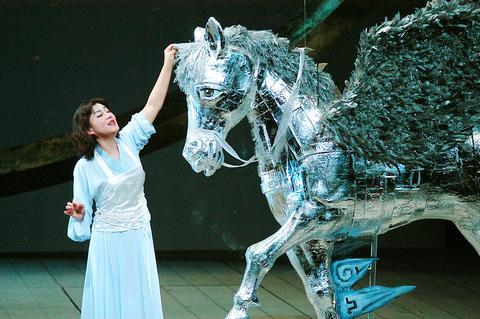
PHOTO COURTESY OF OPERA WORKSTATION
In order to create the world of Yao Ji, Wang has collaborated with an international collection of talented characters from the world of opera. The opera's leading roles are performed by Chinese-born tenor Mario Lin (徐林強) who, while originally trained in Beijing opera, has gone onto become one of China's leading Western opera stars. He has performed at prestigious venues from the Carnegie Hall in New York to the Royal Opera House in London's Covent Garden. Taiwan's leading soprano, Lu Chiung-jung (盧瓊蓉), who studied under the guidance of renowned Romanian diva Malvina Parnas, will also appear.
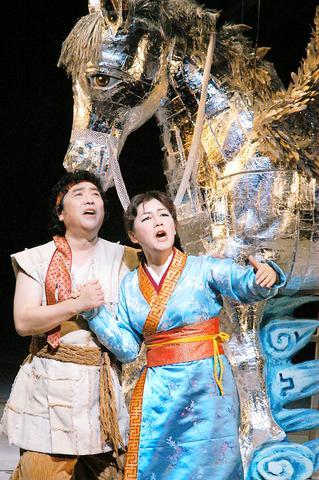
PHOTO COURTESY OF OPERA WORKSTATION
The futuristic costumes that give The Legend of Yao Ji its weird and wonderful sci-fi-like feel were designed by famed German set and costume designer Peter Sykora, whose credits include the Moscow Bolshoi Theater.The lightning designer is Friedewalt Degen. As one of the most influential stage lighting designers in Europe, Degen transforms the stage into a mystical world where immortals and mortals battle the elements to save mankind.
The Evergreen Symphony Orchestra (ESO,
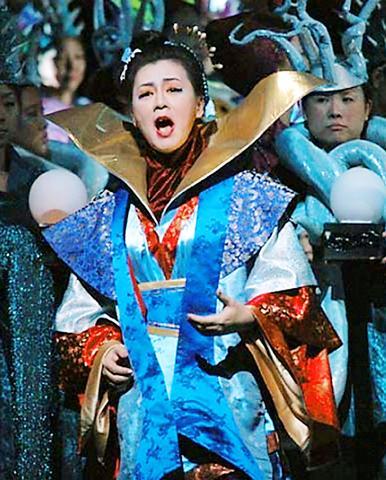
PHOTO COURTESY OF OPERA WORKSTATION
Performance information :
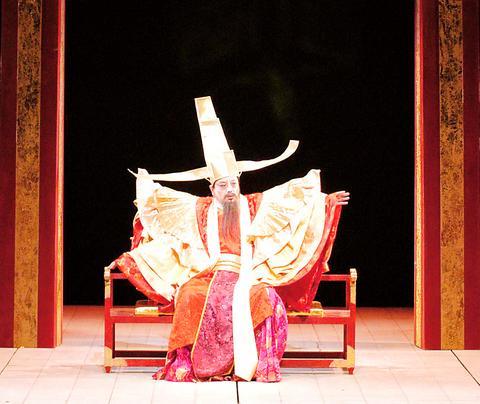
PHOTO COURTESY OF OPERA WORKSTATION
What: The Legend of Yao Ji (瑤姬傳奇)
Where: The National Theater (國家戲劇院)
When: 7:30pm Saturday, September 4 and at 2pm and 7:30pm Sunday, September 5
Tickets: Tickets cost between NT$600 and NT$3,600 and are available at the CKS Cultural Center box office.

When the South Vietnamese capital of Saigon fell to the North Vietnamese forces 50 years ago this week, it prompted a mass exodus of some 2 million people — hundreds of thousands fleeing perilously on small boats across open water to escape the communist regime. Many ultimately settled in Southern California’s Orange County in an area now known as “Little Saigon,” not far from Marine Corps Base Camp Pendleton, where the first refugees were airlifted upon reaching the US. The diaspora now also has significant populations in Virginia, Texas and Washington state, as well as in countries including France and Australia.

On April 17, Chinese Nationalist Party (KMT) Chairman Eric Chu (朱立倫) launched a bold campaign to revive and revitalize the KMT base by calling for an impromptu rally at the Taipei prosecutor’s offices to protest recent arrests of KMT recall campaigners over allegations of forgery and fraud involving signatures of dead voters. The protest had no time to apply for permits and was illegal, but that played into the sense of opposition grievance at alleged weaponization of the judiciary by the Democratic Progressive Party (DPP) to “annihilate” the opposition parties. Blamed for faltering recall campaigns and faced with a KMT chair

Article 2 of the Additional Articles of the Constitution of the Republic of China (中華民國憲法增修條文) stipulates that upon a vote of no confidence in the premier, the president can dissolve the legislature within 10 days. If the legislature is dissolved, a new legislative election must be held within 60 days, and the legislators’ terms will then be reckoned from that election. Two weeks ago Taipei Mayor Chiang Wan-an (蔣萬安) of the Chinese Nationalist Party (KMT) proposed that the legislature hold a vote of no confidence in the premier and dare the president to dissolve the legislature. The legislature is currently controlled
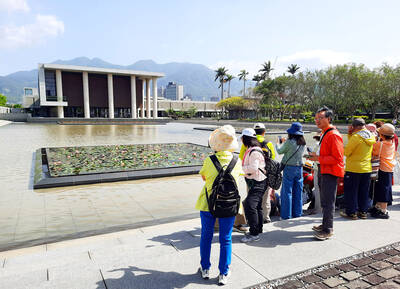
Dull functional structures dominate Taiwan’s cityscapes. But that’s slowly changing, thanks to talented architects and patrons with deep pockets. Since the start of the 21st century, the country has gained several alluring landmark buildings, including the two described below. NUNG CHAN MONASTERY Dharma Drum Mountain (法鼓山, DDM) is one of Taiwan’s most prominent religious organizations. Under the leadership of Buddhist Master Sheng Yen (聖嚴), who died in 2009, it developed into an international Buddhist foundation active in the spiritual, cultural and educational spheres. Since 2005, DDM’s principal base has been its sprawling hillside complex in New Taipei City’s Jinshan District (金山). But